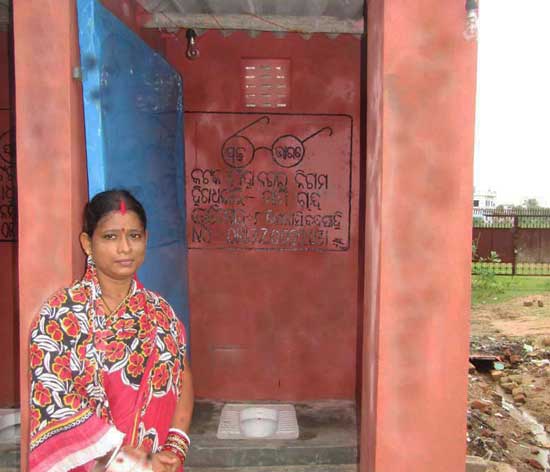
In the last few decades, there has been a phenomenal shift towards urbanisation; by 2030, 6 out of every 10 people in the world will reside in urban areas. In India, the effects are already being felt in the areas of basic needs like housing, water, sanitation and energy, including unplanned growth of slums and increasing disasters. Tata Trusts is playing a catalytic role in promoting socially and environmentally sustainable habitats for the urban poor.
In Cuttack, the former capital city of Odisha, there are 309 slums, equally represented by communities of different religions. Their livelihood depends on small roadside vending outlets and working as daily-wage labourers. With just 57 public toilets in the city in June 2017, slum dwellers have been facing a lot of problems, and living in an unhygienic environment.
For a few years now, the Cuttack Municipal Corporation (CMC) has been working towards attaining an open defecation-free status. With the launch of the Swachh Bharat Mission (SBM), people from various walks of life have come together to motivate slum dwellers for the construction and proper usage of toilets. Furthermore, to expedite the construction process, CMC transferred Rs. 2,000 to the beneficiaries’ account; but due to lack of appropriate information and follow-up action by the SBM functionaries at the community level, the construction didn’t take place or was stopped midway — with people willing to start again only after getting the full benefits under the scheme.
To address the issue, Tata Trusts, through the Odisha Urban Habitat improvement strategy, focused on community mobilisation and sensitising the general public about the necessity of sanitation and hygiene. The project team organised frequent meetings with the community, local representatives and other stakeholders to update them on the SBM process and modalities. Involvement of women self-help groups and slum development committees helped accelerate the activities. Project teams visited each household to discuss with the beneficiaries and find out the issues they were facing. Field personnel kept a check to ensure that people did not defecate in the open.
As a result of this meticulous intervention, the first phase of the project was completed successfully by November 2017 with the construction of 82 toilets, and another 34 are in the final stage of construction. Project staff and technical teams have verified the feasibility of all construction sites as well as trained the masons on appropriate technique.
Now the staff is in the process of facilitating the provision of SBM benefits to the beneficiaries. Within a short period of the intervention, there are indications of improved community ownership and developed woman leadership. As stated by 38-year-oldMami Chand, a beneficiary in Bidanasi Bandha Sahi slum, “This was a necessity, which we kept neglecting for quite long. We’ll make sure the infrastructure is used and maintained well.¬ We are happy that our families are now living in a healthier environment.”
The success of the efforts in Cuttack have given a boost to the project to achieve its objectives. The Urban Habitat Initiative of Tata Trusts, in collaboration with the government resource organisations and civil society bodies, is operational in the states of Odisha, Maharashtra, Gujarat and Delhi, and currently covers over 50,000 individuals. By the end of three years (by March 2020), the project will cover over 200,000 individuals across 10 states.
